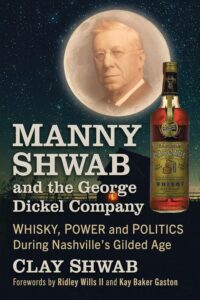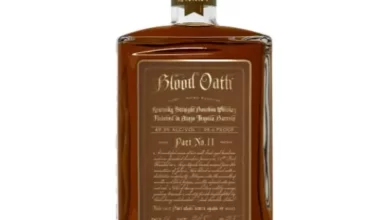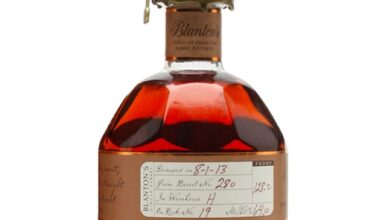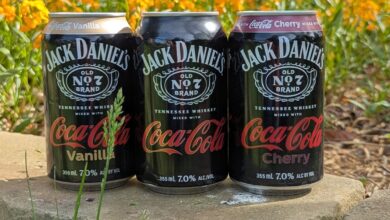Book Review: Manny Shwab and the George Dickel Company
By Richard Thomas
Rating: A
 While enthusiasts tend to focus on the people who work the stillhouse and make the whiskey, the true story of the industry is more often than not rooted the business side of things. Before I turned my attention to the book under review, I was writing about Cream of Kentucky. The modern company is the work of former Four Roses Master Distiller Jim Rutledge, who enjoys near living legend status in Kentucky bourbon today, but he wouldn’t be rebuilding that long moribund brand if it hadn’t been picked up by Stephen Camisa and Jon Mowry, who are hardly ever mentioned.
While enthusiasts tend to focus on the people who work the stillhouse and make the whiskey, the true story of the industry is more often than not rooted the business side of things. Before I turned my attention to the book under review, I was writing about Cream of Kentucky. The modern company is the work of former Four Roses Master Distiller Jim Rutledge, who enjoys near living legend status in Kentucky bourbon today, but he wouldn’t be rebuilding that long moribund brand if it hadn’t been picked up by Stephen Camisa and Jon Mowry, who are hardly ever mentioned.
So it is with George Dickel, who was a real person and often dominates the narrative of the modern George Dickel brand. A brief summation of that story would be that Dickel founded a company that sourced whiskey from Cascade Hollow, near Tullahoma, Tennessee. It’s the site of the modern George Dickel, a 1960s refoundation based on many of Dickel’s production practices. After Dickel’s death, ownership of the company reverted to business interests in Nashville. “Business interests” really means his partner, Victor “Manny” Shwab.
As a biography of an unsung, key figure behind a major legacy whiskey brand, this is the kind of book I wish would be published more often. Literally dozens of such figures around the world deserve this treatment, and in Shwab’s case it is lucky that one of his descendants, Clay Shwab, was motivated to do the work.
But Manny Shwab and the George Dickel Company more than that, because it is also a window into the scandalously corrupt and wild Nashville of the late 19th and early 20th centuries. Keep in mind that when Tennessee went dry in 1909, the mayor of Nashville refused to enforce the statewide ban on liquor and was forced from office by the state government. These two seats of government are just half a mile apart! Far from being a dry account of matters like accounting, it is full of not just booze, but sex, violence and double dealing. It’s the Gilded Age done Tennessee, rather than New York or Chicago style.
The book belongs on the shelf of anyone who considers themselves an American whiskey history buff, and is the kind of thing that can be passed around to friends with the admonition “just wait until you get to the juicy parts.”





Thank you, Richard Thomas, for your very kind review of my book. The book is available via Amazon, Barnes and Noble, etc, but it is also available directly from me, signed and for a bit less, at my website, Cascade Whisky’s long term slogan, mellowasmoonlight.com.
Clay Shwab